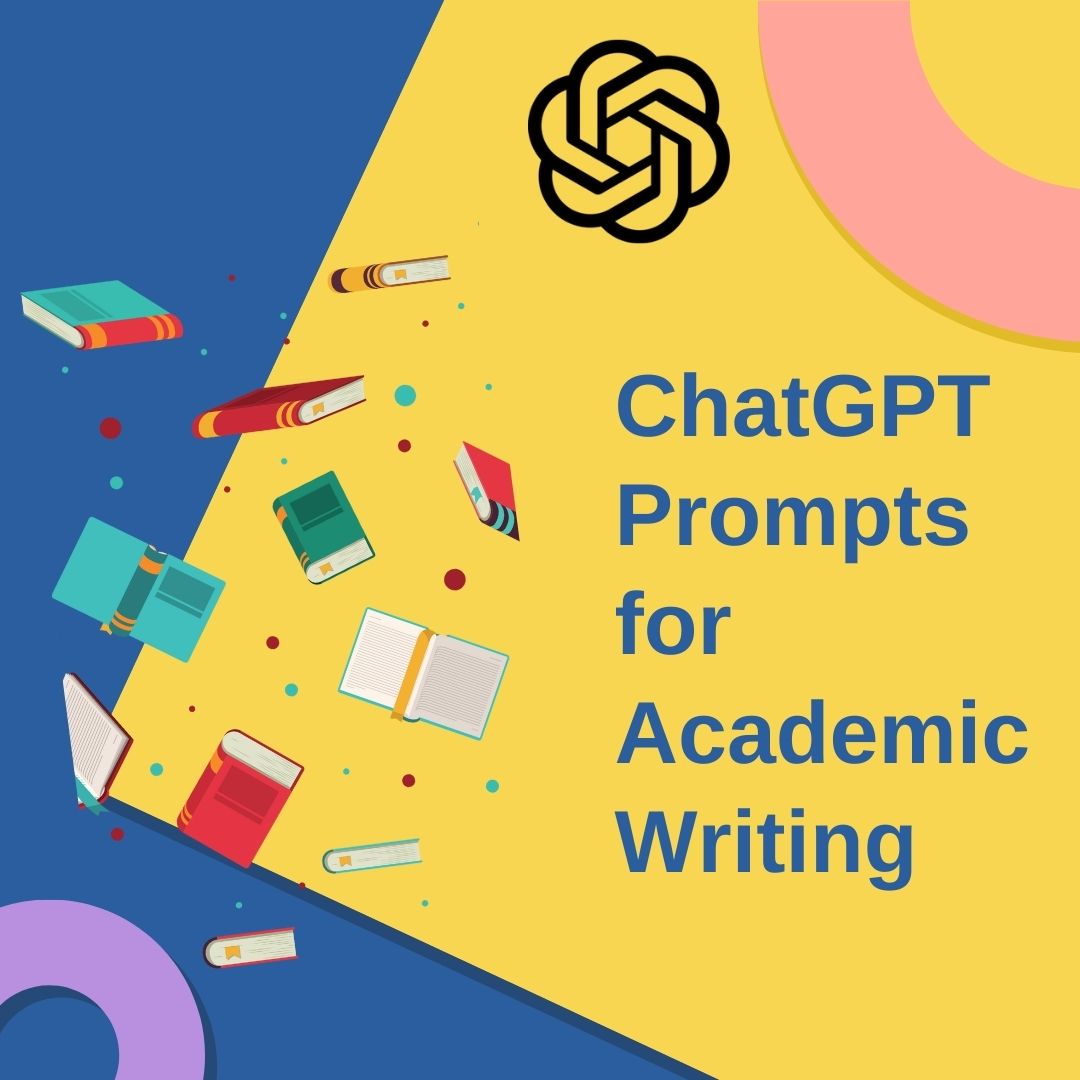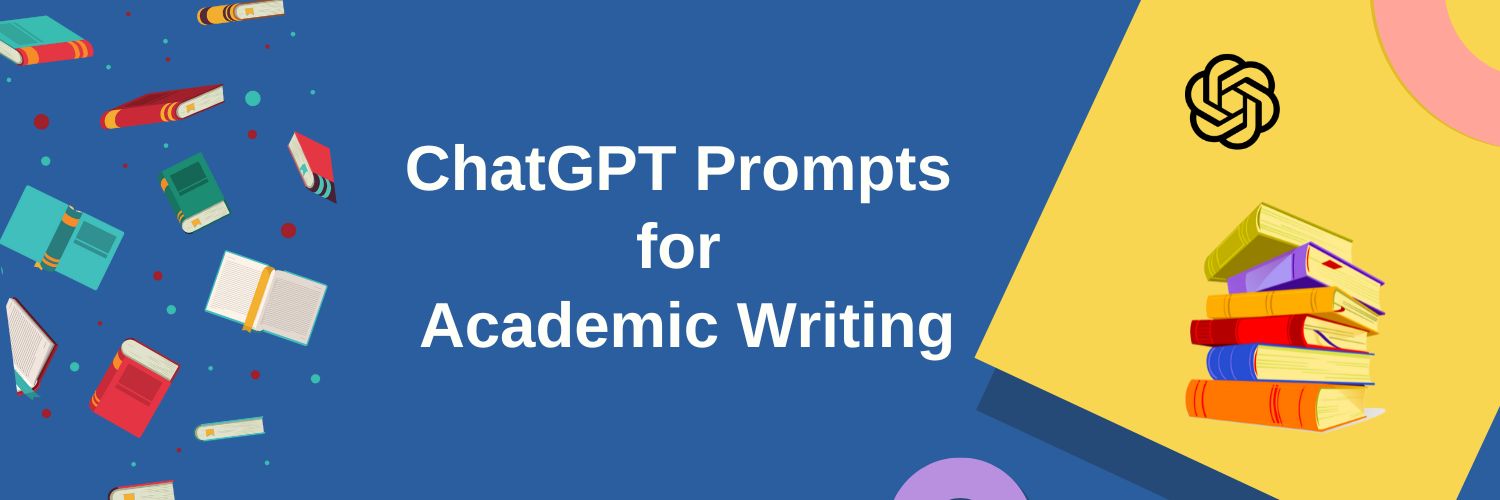ChatGPT Prompts for Academic Writers
 ismail saleem
ismail saleem
Academic writing is a demanding and intricate process that requires careful planning, extensive research, and concise expression of ideas. For students and professionals in various fields, the ability to generate high-quality academic content efficiently is a prized skill. In recent years, AI-driven language models have revolutionized the way we approach writing tasks. Among these models, ChatGPT, developed by OpenAI, has emerged as a powerful tool for academic writers. In this article, we will explore how ChatGPT can be used to assist academic writers by providing them with relevant and insightful prompts.
Understanding ChatGPT
ChatGPT is a language model designed to generate human-like text based on the input it receives. Users can interact with it by providing prompts or questions, and it will respond with coherent and contextually relevant text. While it can be used for various purposes, it has proven particularly beneficial for academic writing. The key features that make ChatGPT a valuable tool for academic writers are:
Versatile Assistance: ChatGPT can help with a wide range of academic writing tasks, including essay writing, research paper development, brainstorming ideas, and even proofreading. Its versatility is a valuable asset for anyone involved in academic writing.
Rapid Idea Generation: For many academic writers, one of the most challenging aspects is generating ideas and creating an outline. ChatGPT can quickly generate topic ideas, suggest arguments, and help you structure your paper effectively.
Citing Sources: When researching and citing sources, ChatGPT can assist by generating properly formatted citations and suggesting relevant academic references.
Grammar and Style Checks: ChatGPT can also serve as a built-in proofreader, offering grammar and style suggestions, ensuring that your writing meets the highest academic standards.
Leveraging ChatGPT for Academic Writing
Here's how academic writers can make the most of ChatGPT:
Brainstorming and Idea Generation: To kickstart your writing process, provide ChatGPT with a general topic or research question. It can generate ideas, potential arguments, and even help you structure your paper.
Research Assistance: If you're stuck while conducting research, you can ask ChatGPT for a summary of key points from an article or research paper. It can also suggest additional sources or relevant keywords for your research.
Outlining: Outline your paper with ChatGPT's help. You can ask it to create a rough structure with headings and subheadings, which will guide you throughout your writing process.
Citations and References: When you're unsure about citing sources correctly, ChatGPT can provide examples of properly formatted citations in various citation styles like APA, MLA, or Chicago.
Grammar and Style Check: After completing your draft, ask ChatGPT to review your work for grammar and style issues. It can help you identify and correct errors and inconsistencies in your writing.
Feedback and Editing: If you have a draft, you can share it with ChatGPT to get feedback on the overall coherence and quality of your paper. It can offer suggestions for improvements and revisions.
Best Practices for Using ChatGPT in Academic Writing
While ChatGPT is a valuable tool for academic writing, it's important to use it effectively and ethically:
Combine Human Expertise: ChatGPT should complement your academic skills, not replace them. Use it to enhance your writing process, but always apply your own knowledge and judgment.
Verify Information: Double-check the information provided by ChatGPT, especially when using it for research. It's essential to ensure the accuracy and reliability of the content.
Cite Sources Properly: When ChatGPT helps with citations, verify that they follow your institution's preferred citation style and make any necessary adjustments.
Edit and Revise: ChatGPT is not infallible. Be prepared to edit and revise your work thoroughly, even if it has been reviewed by the model.
Understand Plagiarism: While ChatGPT can provide text, avoid plagiarism at all costs. Ensure that the content generated by the model is properly paraphrased and cited to prevent academic dishonesty.
Conclusion
ChatGPT has emerged as a valuable tool for academic writers, offering assistance in idea generation, research, organization, citation, and proofreading. By using ChatGPT effectively and ethically, academic writers can streamline their writing process, produce higher-quality work, and save time. It's important to remember that ChatGPT is a tool to enhance your skills, not a substitute for them. When combined with your expertise and commitment to academic integrity, ChatGPT can become an indispensable partner in your academic writing journey.
Subscribe to my newsletter
Read articles from ismail saleem directly inside your inbox. Subscribe to the newsletter, and don't miss out.
Written by

ismail saleem
ismail saleem
We're passionate about harnessing the power of ChatGPT to make it a valuable tool for professionals. By tailoring prompts to specific occupations, we aim to demonstrate the profound impact ChatGPT can have on tasks, efficiency, and knowledge expansion across a wide spectrum of careers. Our journey is about innovation and adaptation, where ChatGPT becomes an indispensable companion for professionals worldwide.
